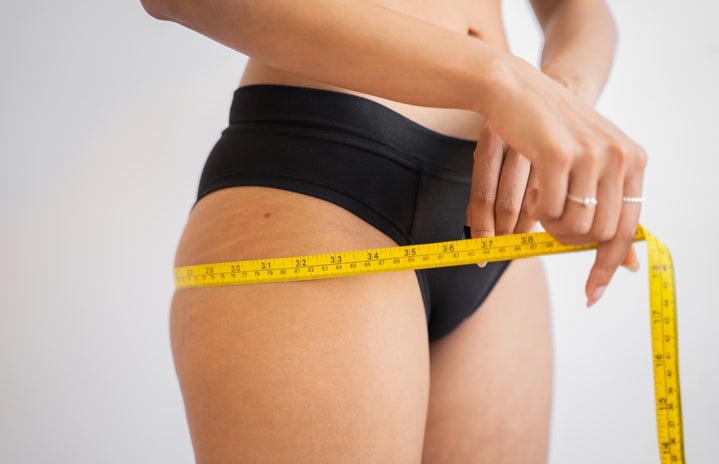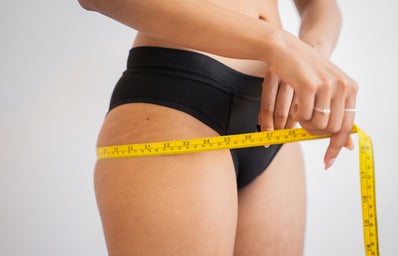Trigger Warning: This post mentions Eating Disorders, Suicide, and Depression.
Content Warning: This post contains personal experiences by the author, they are not meant to be offensive, just her truth. :)
You are wanted. Big, small, tall, short, pretty, plain. Don’t let anyone tell you otherwise, not even yourself. Especially yourself. Realize that you are pretty, you are a cluster of stardust, a walking explosion of nebulas. There are constellations that knot your arteries together, you’re beyond pretty, and you’re the greatest creation with a unique fingerprint that could never be replicated.
Some believe that making overweight people feel ashamed of their weight or eating habits may motivate them to get healthier. However, scientific evidence confirms that nothing could be further from the truth. It’s so true. People take the wrong approach when trying to discuss the topic of your weight. Family members, doctors, and even complete strangers make it the hardest as they can cut you down in a split second. Body shaming can cause a decrease in motivation, depression, eating disorders, reduced self-esteem, stress, weight gain, mental problems, increased risk of suicide, increased cortisol (a stress hormone) levels, and it can increase your risk for certain chronic diseases. As someone who is overweight, there is not a day that goes by that I am not reminded that I need to stop eating this, or I need to exercise, or I need to lose weight, or I need to make myself look pretty. It really does take a toll on my mental health and self-esteem. Some days I won’t want to eat because of all the negative thoughts that are swirling around and there are times I feel guilty for eating something.
My great hope for us as young women is to start being kinder to ourselves so that we can be kinder to each other. To stop shaming ourselves and other people: ‘too fat, too skinny, too short, too tall, too anything.’ There’s a sense that we’re all ‘too’ much of something, and that we’re not enough. This is life. Our bodies change. Our minds change. Our hearts change[sic].
Emma Stone
It’s important to remember to eat, but body-shaming from others and yourself can make you so self-conscious that it can make the simple matter of eating, a chore, something that you feel bad about. But lately, I have realized that I have to love myself for who I am and how I look. I shouldn’t be ashamed of who I am or let negativity manifest. I definitely have body issues, but so does everybody! When you come to the realization that everybody does — even the people that you consider flawless — then you can start to live with the way you are. People see enough of this body they can’t imitate, one with unrealistic expectations, that they’ll never be able to obtain. It’s better to look healthy and strong, who cares if there are lumps on your thighs? Why be guilty of having human legs made up of fat, muscle, and skin, and sometimes when you sit, they get bumpy!
Problematic body shaming comments we may have heard during our teens or childhood.(Proceed with needful caution!🫂):
- “You would look prettier if you lost a little weight.”
- Unsolicited diet and workout advice
- Comparison with friends and peers
- “You have gained or lost weight.”
- Skinny shaming comments
Pope Francis on Tuesday condemned body shaming among young people, acknowledging that he was guilty of doing it himself when he was a boy in Argentina more than seven decades ago. Francis made his comments while speaking to university students in Asia. “Regardless of you being fat, thin, short, tall, the important thing is to live in harmony, harmony in your hearts … every man, every woman has their own beauty, and we really have to learn how to recognize it,” he said. Francis also spoke of cosmetic surgery during the conversation with the university students. “Plastic surgery serves no purpose because its beauty is going to fade eventually,” he said, quoting the well-known story of 20th-century Italian actress Anna Magnani saying,
“Please don’t retouch my wrinkles. It took me so long to earn them”.
Anna Magnani (Actress)
One of the worst parts about having body dysmorphia is the self-loathing that comes with taking photos. One gets so conscious about how they look that they end up refusing to document their life. You wind up erased from your own milestones. Sometimes you think you’re okay with your appearance until someone takes a picture of you and you don’t even recognize yourself in it, you thought you looked different, but you look 10 times bigger than how you thought you looked that day, so you just sit there wishing you looked “better”.
Your body shows up for you each and every day, and it deserves your wholehearted love.
My friends and family are mostly supportive but as a fat person, it irks me when my thin friends complain of “feeling fat”. As if being me is their worst nightmare. Like they’d hate to be me which exposes the shallowness of their support but in a way, I get their anxieties too.
In recent times (the last 30 years) a certain body type has been hailed and glorified as the ‘perfect’ body size. Anybody who goes against that image is considered ‘aberrant’. Our society is laced with fatphobia, which is the morbid rejection of being fat and getting fat. It amounts to discrimination against a person on the sheer basis of their fat body. Society attaches the notion of being out of control, lazy, and careless with a fat body, completely ignoring the other socio-cultural aspects that contribute to the shape of someone’s body. A deep fear is instilled in young girls to starve and present their bodies at an appropriate size. The socially constructed ideal shape of the body has never been about being fit or healthy, it has always been about fitting into the trendy aesthetic of the climate at that moment. The moral intervention into people’s bodies has also left most with a lack of feeling desirable in sexual relationships.
Until the beginning of the 20th century, the standard of beauty for a woman was a fuller body as it was indicative of fertility, health, wealth, and emotional well-being. However, from the 1900s, the size of a woman’s body became a social, cultural, and medical issue and now is measured from the point of the internet’s new aesthetic. The radical medicalization of fatness was largely contributed to by the establishment of the Body Mass Index (BMI) which doesn’t account for social, cultural, racial, or biological contribution to a person’s body shape. The BMI is largely confused with socially idealized ‘health weight’, which makes obesity the best example of a socially constructed disease since the status of “sick” does not only come from the BMI but society’s perception of what an ideal weight and body shape is.
While both forms of body-shaming are irrevocably tied to the misogyny of expecting women to look a certain way, the way fatphobia operates in our society means that larger people often face a unique form of systemic exclusion.
“While of course insulting anyone on the basis of their size is problematic, ‘skinny-shaming’ and ‘fat-shaming’ are not two sides of the same coin,[sic]” Jennifer Rollin, therapist and founder of The Eating Disorder Center in Maryland, USA, told GLAMOUR.
“Folks in larger bodies often face discrimination such as biased medical care – which can be dangerous and even deadly, employment discrimination, and may be the recipients of stereotypes and judgment.” She added that “Society often promotes the thin ideal standard of beauty[sic]”, being insulted for being slim doesn’t bring about the same real-world impact as fat-shaming.
If you are going through these same things, remember you are not alone. Every time we join in on tearing a man down, we’re doing a disservice to women and all other genders too. According to a 2020 body image survey run by Parliament, 61% of adults have negative feelings about their body image. This answers the metaphorical question: it is just as hard to be Ken as it is Barbie. Ultimately, the way someone looks literally has nothing to do with anyone else. Instead, let’s flip the narrative and celebrate people of all body types, weights, ages, and everything else. The age-old school playground saying has never been so apt here: If you don’t have anything nice to say, don’t say anything at all.
One needs to realize that people see more than just your body. Your impact on other people is bigger than you think. Someone still laughs when they think of that funny thing you said. Someone still smiles when they think of the compliment you gave them. The support and love you’ve offered have made someone’s day. You’re not insignificant and forgotten. Your existence makes a positive difference, and it’s time you see it.


